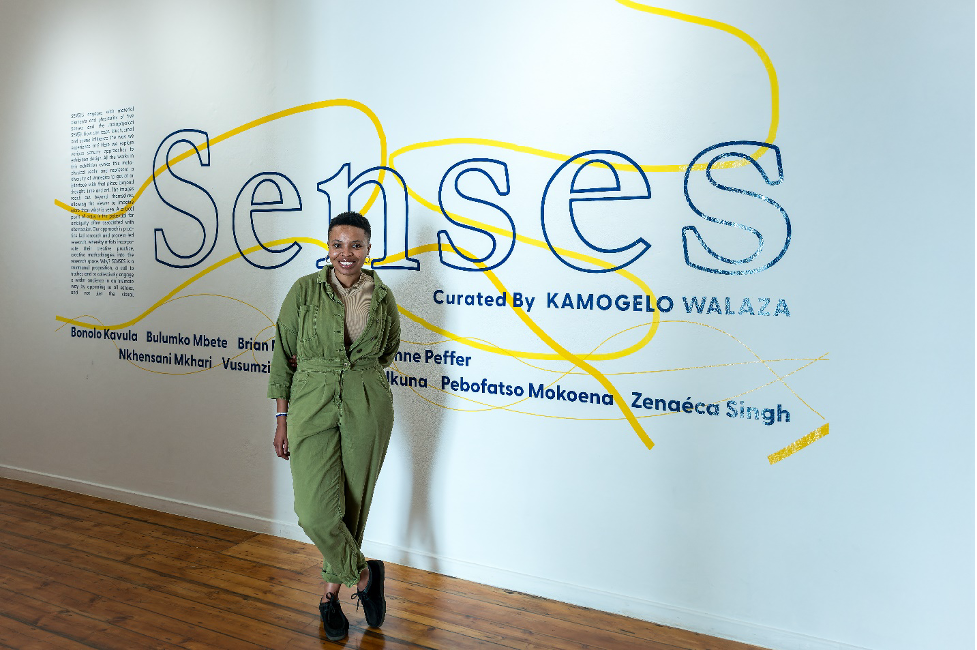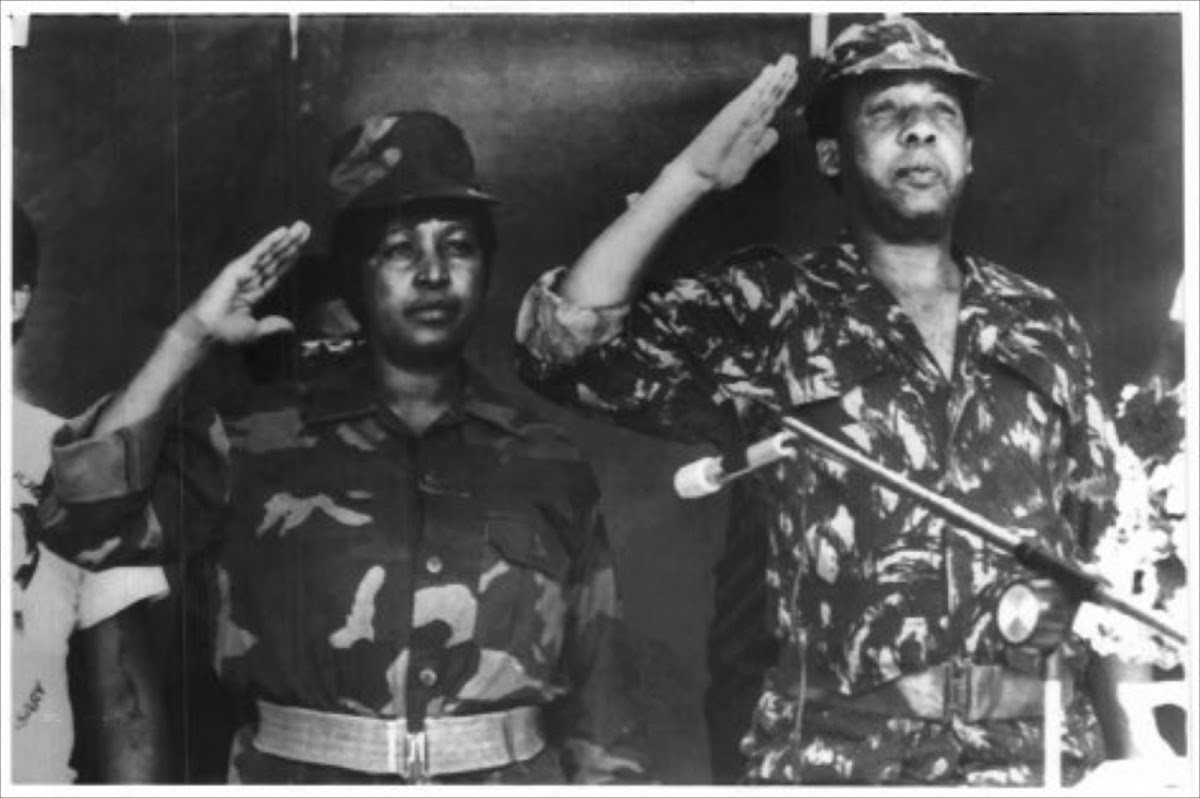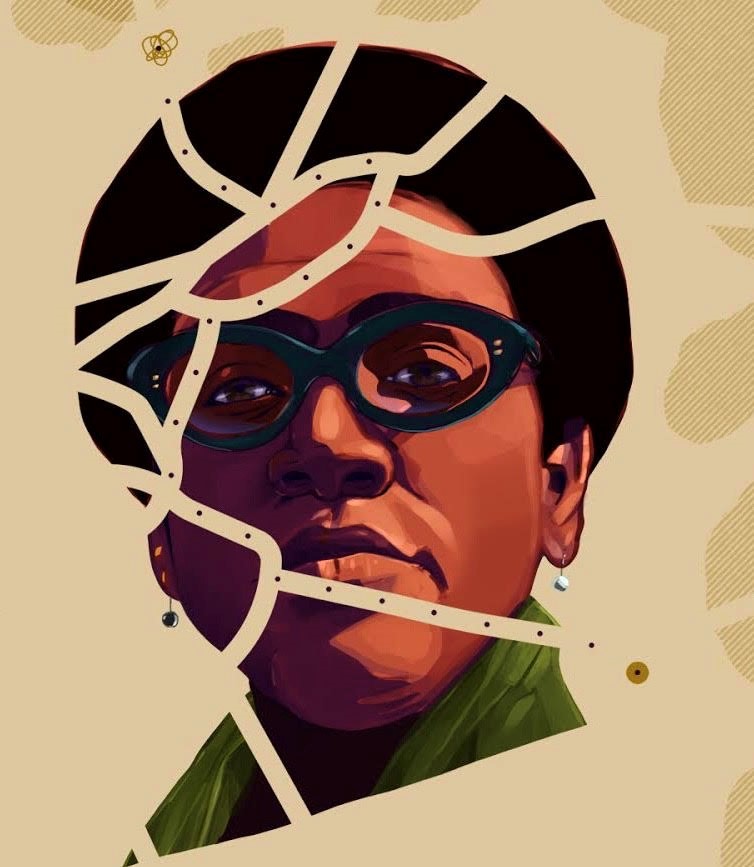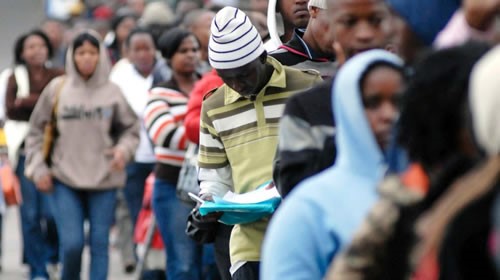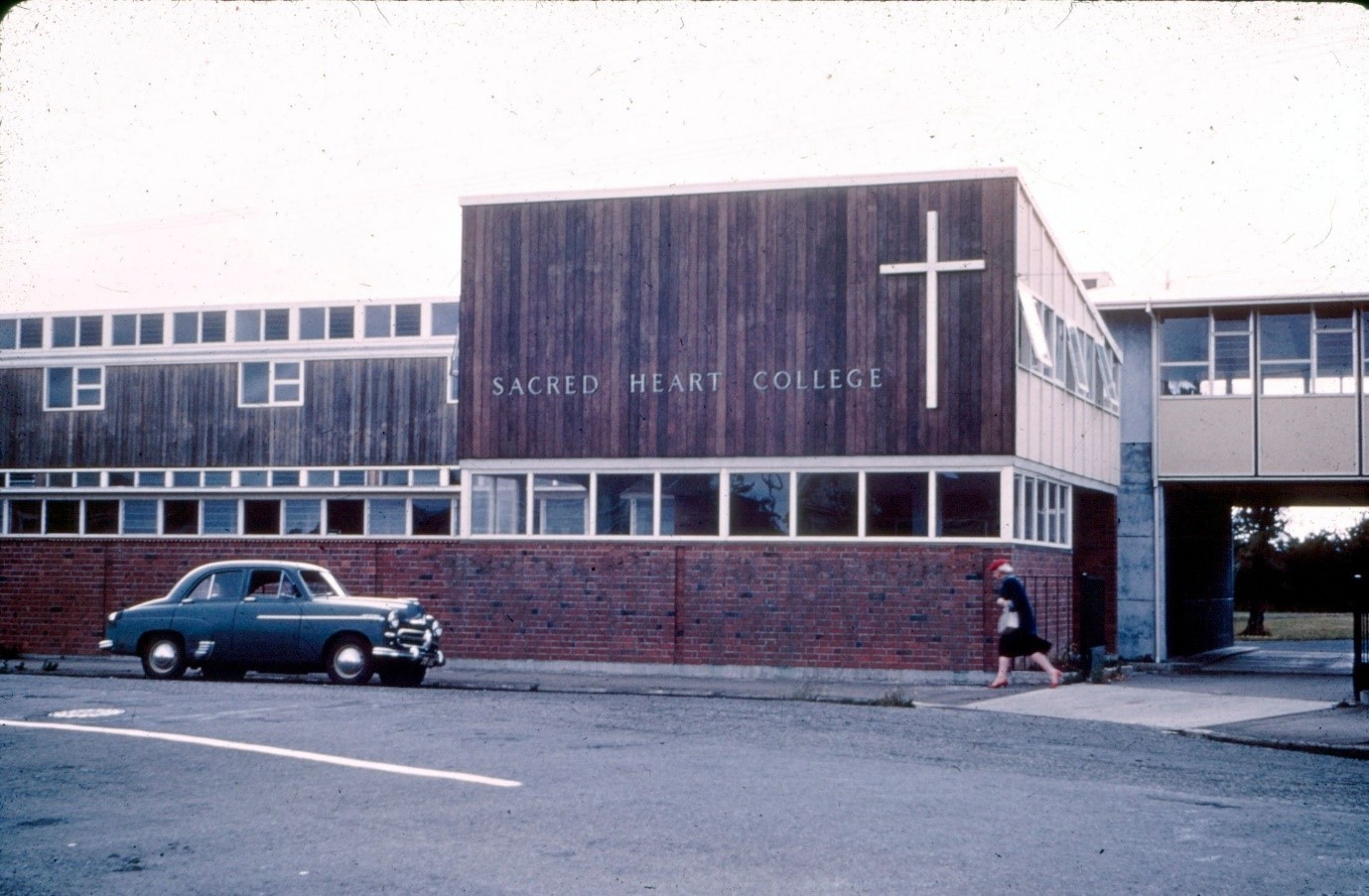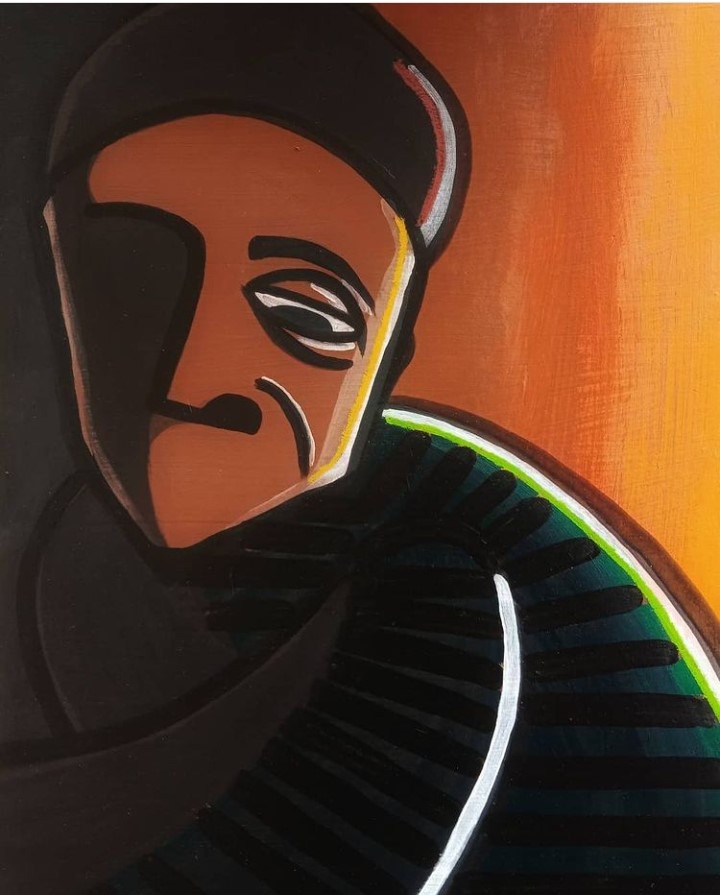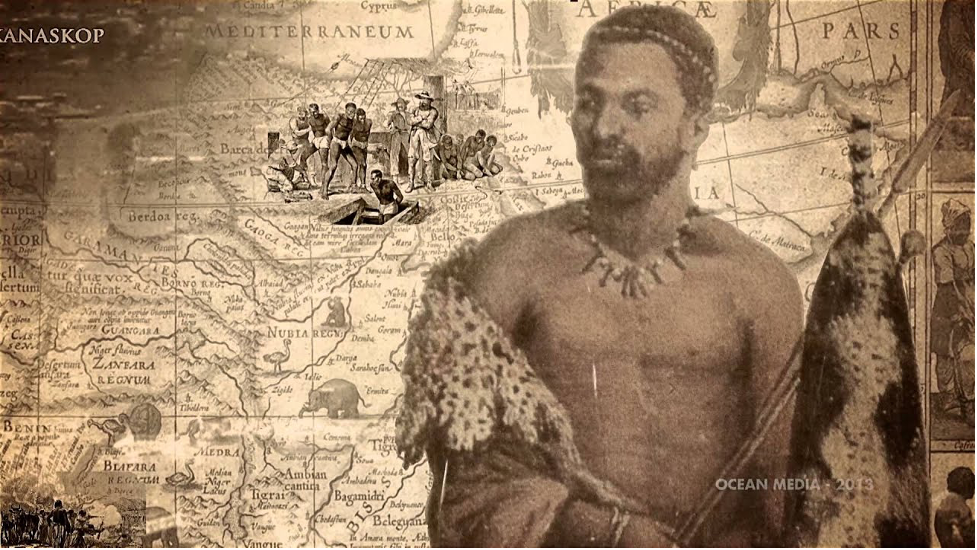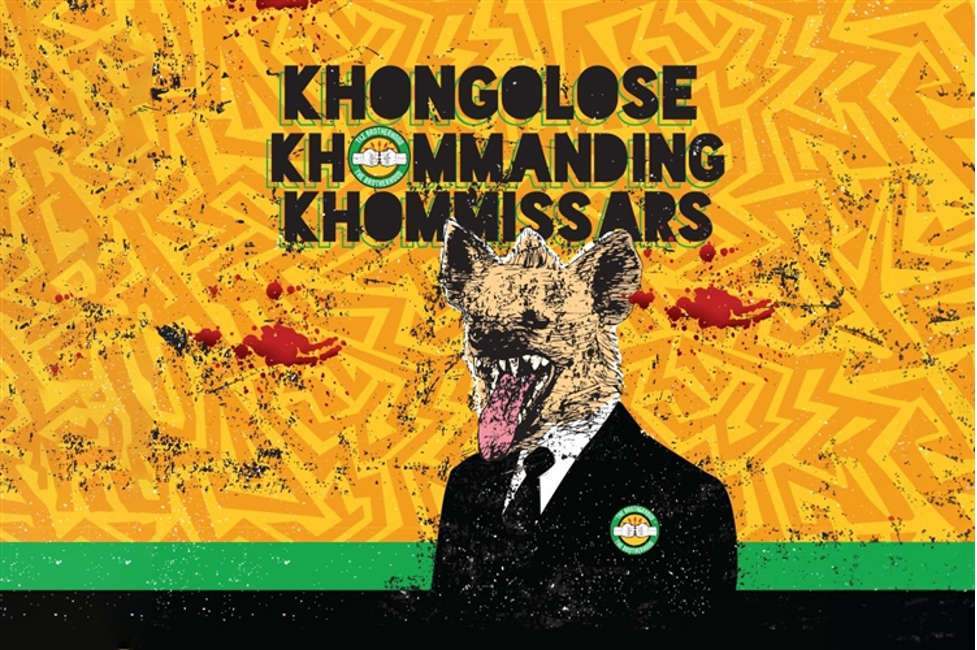The discomfort of democracy, or at least my discomfort, is often rooted in its complexities and contradictions. In an ideal world – as a “born free” – the negotiation of freedom and its practice is imbrued in broken promises. We were told education is the key to success, so we went to school. We are arguably the most educated generation, but some still sit at home unemployed. Remember the time our government told us to stop looking for jobs but to rather become entrepreneurs and create our own jobs instead? Either the key is broken, or we were given the right key for the wrong door. We know the door shouldn’t have been locked in the first place.
I sat down with a fellow young curator who, although is not a born-free, was born three years before South Africa’s declaration of democracy. In our interview, Kamogelo Walaza reflects on her general optimism towards challenges while unpacking how her position as a curator has shaped her thinking about creative practices in a post-apartheid South Africa.
DD: The first question I have for you is around your background. How did you get into curating?
KW: I think my background in drama, knowing how to create stories and finding healing in storytelling is really how I became a curator. With theatre making, you constantly have rehearsal processes with people. In my head, I'm like “I want to bring this rehearsal process into how I would interact with artists”. That's why I define my curatorial practice as social practice: To constantly have studio visits with artists, seeing that they work from the beginning to the end, getting into their heads to see how they think, getting into their hearts to see how they feel… It’s an emotional labour on my part. Artists are very emotional people, they’re sensitive and they love their art, you know? To the point, whereby, it’s not always a business-to-business transaction. It’s not just work. Yeah, it's a very, very, very personal thing.
Anyways, I also worked with Oliwenhuis Art Museum and ARTBANK SA. Thereafter, I worked for a contemporary studio space in Johannesburg. But I really wanted to try curating independently - outside of the practices of the museum and the gallery. I felt it was important for me to find my curatorial voice first, that’s why I became an independent curator. There’s a certain way that these institutions run things, there are certain rules and codes… I want to be able to negotiate on my terms in my practice, that’s the kind of freedom that I enjoy. Freedom to create and curate in own my voice. When you have freedom, you don’t feel the need to resist – you can just simply exist on your terms. I’m sorry for such a long answer (laughs).
DD: You’re democratising curatorial practice in real time, not just through social media but also through your approaches to curating – especially when you integrate your background in drama. You are bringing a different kind of curatorial innovation to the fore.
KW: I’d like to think that. Because there’s so much in the background, you know? And people don't always understand the type of work it takes to be a curator. Someone told me “You are really trying to change how curators are seen publicly”. I'm doing it deliberately; I’m sharing my process and practice with the online community. It’s a key principle in my curatorial practice.
DD: As Jessica Morgan writes in Ten Fundamental Questions of Curating, she notes how fashionable it has become to call oneself a curator. It’s written in I think it’s evident how that term itself has shifted from its etymology…or rather it has expanded? Curators are no longer strictly associated with museums. One of my favourite curators, Nontobeko Ntombela wrote in Practitioning: A Few Notes on Curatorial Training in Africa that the shift of the term is “a constellation of conglomerate things that often define a process, an approach or a way of being that is sometimes seen to serve a coterie but is at the same time adaptable enough to be claimed by anyone”.
KW: I think it’s fashionable because the term itself now is democratised, that’s the word you used? It’s a blessing and a curse. Like I said before, some people think it’s glamourous to be a curator. But it’s a lot of labouring. It’s challenging and rewarding. But on the other hand, it’s kind of beautiful that people have the freedom now to use the word curator…because sometimes it’s not just about art but other ways of creative practices that exist too. Fashion, music, design and so much more.
DD: How has the term shifted or expanded for you? As a young Black curator practicing on the continent, especially with access to other notable Black curators that came before us and even work parallel to us?
KW: Right now, we're in a beautiful space where we have access to great curators in the industry, but I feel there is not much visibility. I just really want people to see the visibility of Black curators. I know I’m not the only Black curator out there. There are so many others. There are people are doing wonderful work and I think, prior to that, there was a different story. You have curators like Nontobeko Ntombela, Portia Malatjie, Nomusa Makhubu, Same Mdluli, Nkule Mabaso etc, that probably didn’t get the same access and opportunities that we did, you know? They really had to work and cultivate that space by themselves and for themselves. so that we could even get a step closer. That very step, for us, is slightly easier to take because of their influence. I’m not sure how to say this in a better way. Without them and many others like them, obviously, I don't think we would be able to navigate the spaces that we’re in right now.
DD: Shifting gears, are there other kinds of emerging trends or ways of working you’ve seen that you’re open to or are excited to see you going forward? Or perhaps any trends you are happy to see pass?
KW: I think people that are familiar with my practice know that I have a particular interest in conceptual, experimental, abstract art. Not that I don’t like figurative work or portraiture, I do, I’m just really excited about Black artists working with Abstract art. and holding that space now…or rather again. I enjoy seeing artists speaking about their work in really conceptually complex and visually challenging ways. So, I think my interest lies in that type of art.
DD: I think the Amy Sherald’s and Zandile Tshabalala’s of the world hold a great space for black figurative painting, it was exciting to see – and still is. There’s a curiosity and subsequent enquiry in how black people portray themselves, we are assertive agents of our own representation. The exhibition, When We See Us at Zeitz (2022) was an example of this.
KW: Definitely. In my opinion, it was a very significant moment. But I’m interested to see how the more abstracted ways of working takes shape now. Black Portraiture is radical, and so is Black Abstraction and Conceptual art.
DD: That brings me to my next question... 30 years of democracy is approaching, what does this mean to you as a curator? If it means anything at all? What is democracy? What is freedom? What does that look like? What does it mean for us as the next generations of creative practitioners going forward? If it's relevant or not?
KW: It is relevant, obviously. Look at me, right? It’s tough though. I'm not trying to complain but working as a Black Woman in any space is hard. It's very challenging. But I think that, if people knew me, they would know that I'm a very optimistic person. I think it annoys people as well (laughs). I think you have to be optimistic, you know? I know that the world is a very hard place, we still have challenges, even with democracy. So, I don't know. I don’t know what democracy is supposed to look like for us. What I feel, is that democracy is difficult. But we make do with what we’ve got. We always have. We are resourceful, but I’m happy we have some feeling of ‘freedom’ to practice. As a curator, as an artist, as a creative…I don’t know, it’s a bit tricky for me to answer.
DD: I think we’re all still grappling with both freedom and democracy as a concept, and that’s probably why it has been difficult to realistically apply and practice it in everyday life. We’re still facing challenges… Lastly, what advice do you have for the people that aspire to make careers in the arts? Specifically, as a curator, what constructive advice can you share?
KW: Ask questions. Firstly, you must be curious. If you're not curious, you're not going to get anywhere. You have to find your line of inquiry and contribute to it. That’s how we build scholarship and engagement. What’s going to set you apart from the next thing? This applies to any creative practitioner.
Secondly, this is a relationship-based industry. You need to learn how to create relationships and nurture them. Everyone knows everyone, or at least knows of everyone. This industry is interconnected.
Thirdly, if you are studying in the arts, you need to know that work doesn’t just start after you graduate. It’s starts from your first year! That’s when you must start cultivating relationships with your peers and lecturers. Attend exhibitions, attend talks, participate in class and in the real world. Don’t be a stranger. Don’t just learn how to talk to people, you need to learn how to talk with people. People must feel like they can relate to you and trust you.
Another point I have, don’t underestimate the power of social media. As you said, we’re in a digital age now. For some people, social media is people’s first point of access to you. Present yourself well on your socials but also appear to be accessible and approachable. Opportunities can come from anywhere! My last point is, take initiative. Don’t be afraid to DM (direct message) or pop that email. Shoot your shot.

